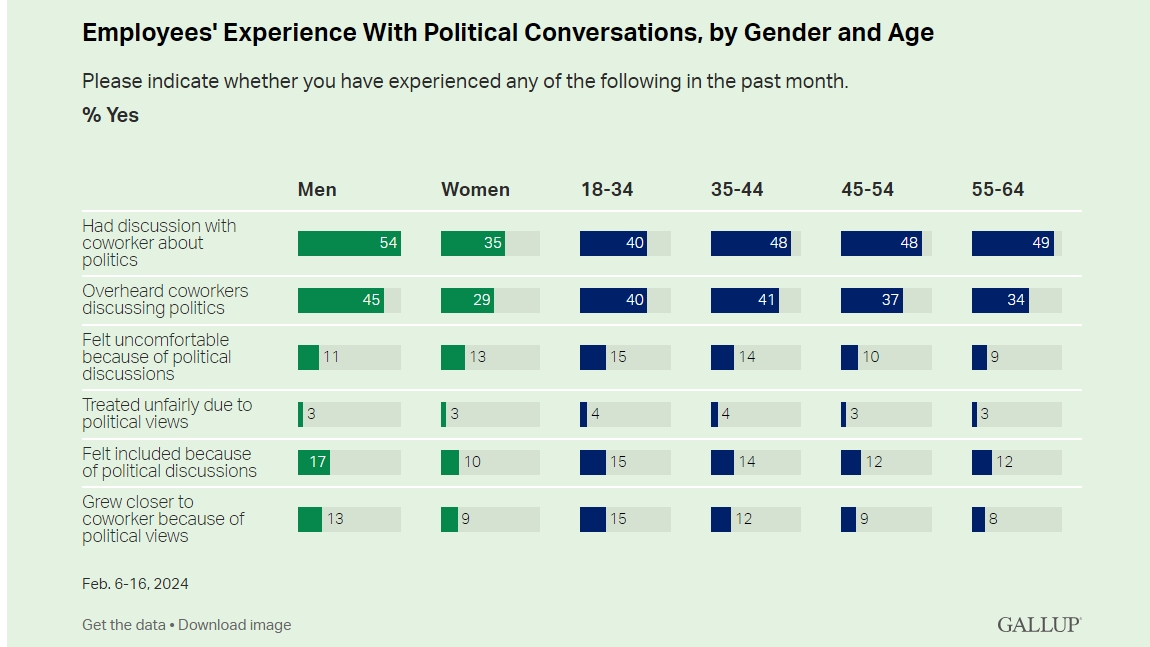
Research highlights that such conversations are more common than expected

Nearly half (45%) of US workers have engaged in political conversations with colleagues in the past month, finds a recent survey.
Not surprisingly, these discussions are more frequent among on-site employees (54%) and hybrid workers (48%) compared to remote workers (28%).
But talking politics at work can be a double-edged sword, finds the Gallup survey. On the one hand, about 14% of employees reported that political discussions have helped them feel included, while 11% said they have grown closer to a coworker because of shared political views.
However, 12% of employees reported feeling uncomfortable during these discussions, and 3% reported experiencing unfair treatment due to their political beliefs.
“The political landscape in the U.S. is highly polarized. Understanding how this manifests in the workplace -- for work relationships, engagement and performance -- is important,” says Gallup.
Those working in male-dominated industries (52%) are more likely than those in female-dominated industries (42%) and industries with gender parity (43%) to report discussing political issues at work.

Additionally, workers in industries with conservative-leaning employees (60%) are more likely than those in industries with liberal-leaning employees (48%) to report having political discussions, found the Gallup survey. Both groups are more likely than those working in ideologically neutral industries (41%) to discuss politics at work.
Six in 10 employees in the U.S. said they won't leave their employer for having an opposing political stance, according to a separate survey.
To navigate the complexities of political discussions at work, Gallup recommends leaders take the following steps:
Emphasize a culture of respect and inclusion: “Leaders should model healthy communication strategies such as active listening and seeking to understand others’ points of view. Modeling these behaviors can inspire employees to follow suit and reinforce a culture of respect and inclusion where every voice is heard and valued.”
Foster trust and understanding between colleagues: “Leaders can help create an environment where people feel safe to respectfully voice differing views without fear of retaliation or dismissal. They can encourage colleagues to get to know one another as individuals and appreciate their commonalities and differences. Engaged employees tend to share trust and have close relationships, which may mitigate the negative effects of differing opinions.”
Set expectations for how conversations should be managed: “Establish ground rules for respectful behaviour as well as systems to address disrespect or discrimination. If guidelines are in place for managing these discussions at work, ensure they are well-communicated and understood by every employee.”